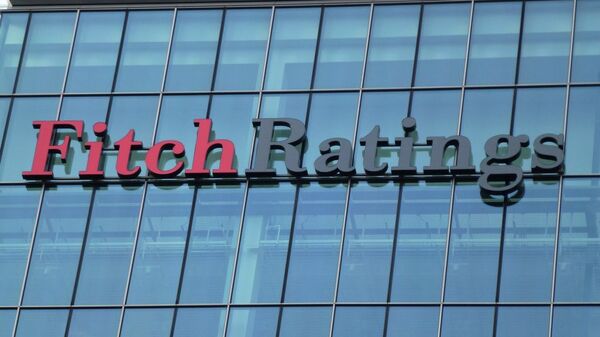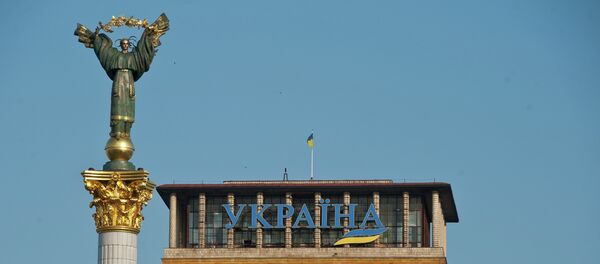MOSCOW/LONDON, January 16 (Sputnik) — Fitch Ratings said Friday it had downgraded the key ratings of 30 Russian and Russian-owned financial institutions by one notch, following its recent downgrade of the Russian sovereign rating.
The move "reflects Fitch's view that Russia's financial flexibility, and therefore ability to provide support to these entities, has somewhat reduced, as reflected by the downgrade of the sovereign rating," the agency said in a statement.
The list of affected financial institutions includes Russia's major lender Sberbank, as well as Vnesheconombank (VEB), Russian Agricultural Bank (RusAg), and Gazprombank.
On January 9, 2015, Fitch downgraded Russia's long-term foreign and local currency Issuer Default Ratings (IDR) to 'BBB-' from 'BBB'.
The New York-based rating agency explained that Sberbank’s downgrade reflected the lowering of Russia's country ceiling to 'BBB-' last week. Fitch said the bank’s ratings “remain underpinned by their standalone strength, as well as potential sovereign support”.
Being majority state-owned, Sberbank and VEB saw their ratings reset to the level of those of the sovereign, as Fitch said it believed the Russian government had a tendency to support financial institutions that enjoyed “exceptionally high systemic importance” of the former and development bank status of the latter.
The agency stressed ratings of RusAg and Gazprombank, the financial wing of Russia’s energy giant Gazprom, were one notch lower than those of Sberbank and VEB because RusAg and Gazprombank did not share their systemic importance or development status.
“The ratings of debt issued by Sberbank, VEB, RusAg, Gazprombank and their subsidiaries apply to debt issued prior to 1 August 2014", Fitch said further, adding it had withdrawn RusAg's expected debt ratings as the agency “no longer expects to convert these into final ratings”.
Fitch indicated that negative outlooks on most of the 30 entities reflected "the potential for them to be downgraded further if Russia's sovereign ratings are slashed and the country ceiling lowered".
The downgrades have been linked to the country’s monetary weakness and ailing economy. Russia is heavily dependent on energy exports. The ongoing slump in global oil prices has led to the country’s economic slowdown, triggering a slide in the national currency’s value against euro and dollar.


